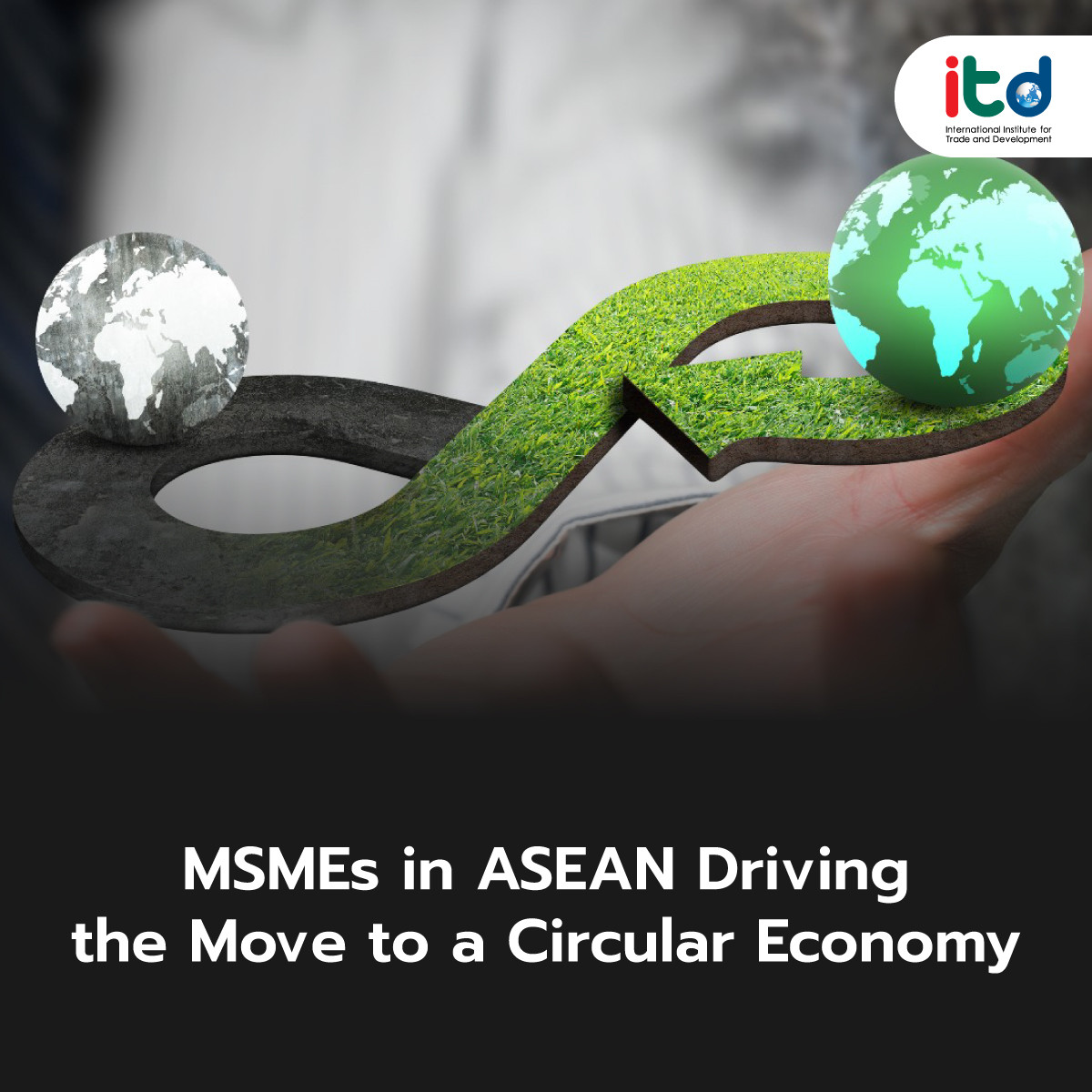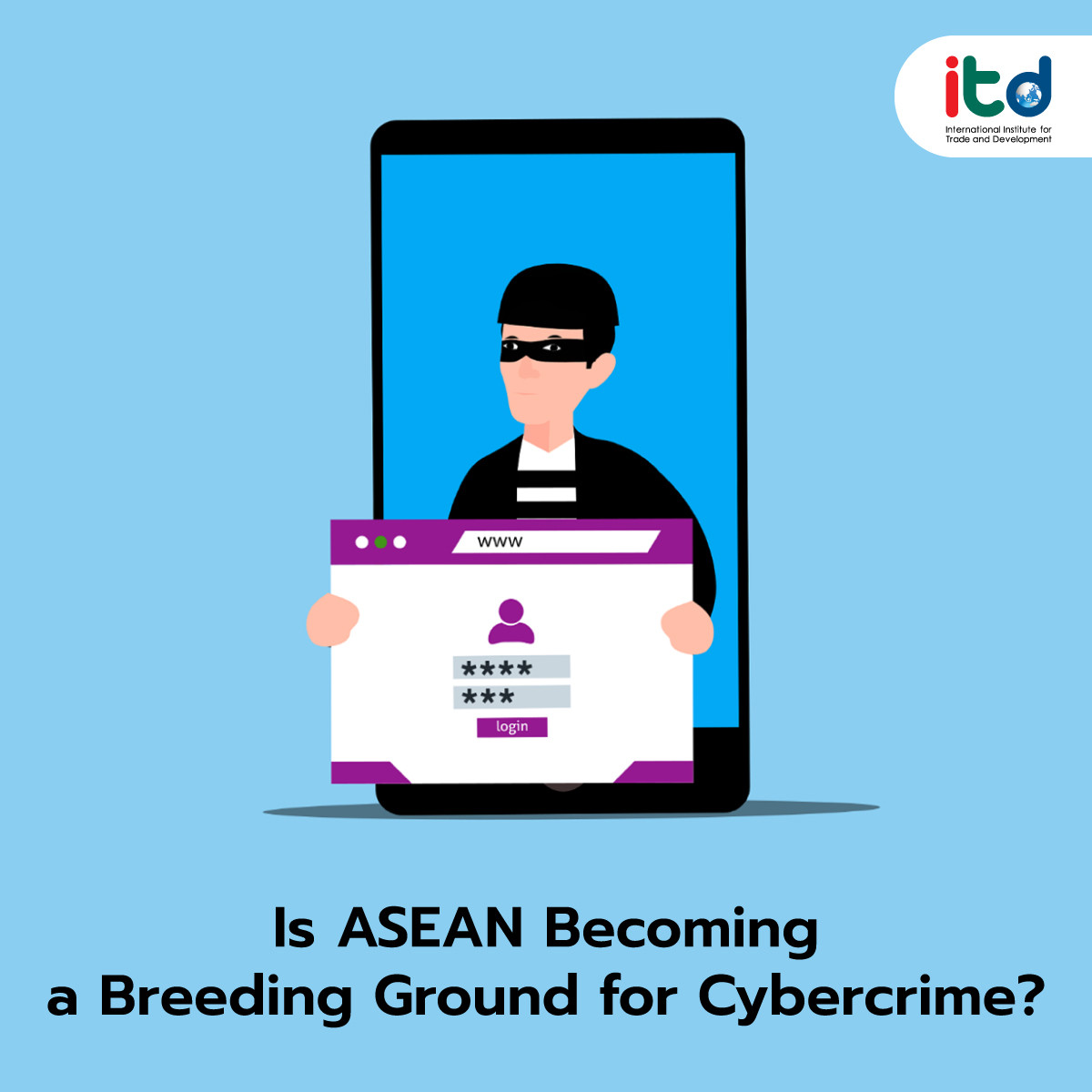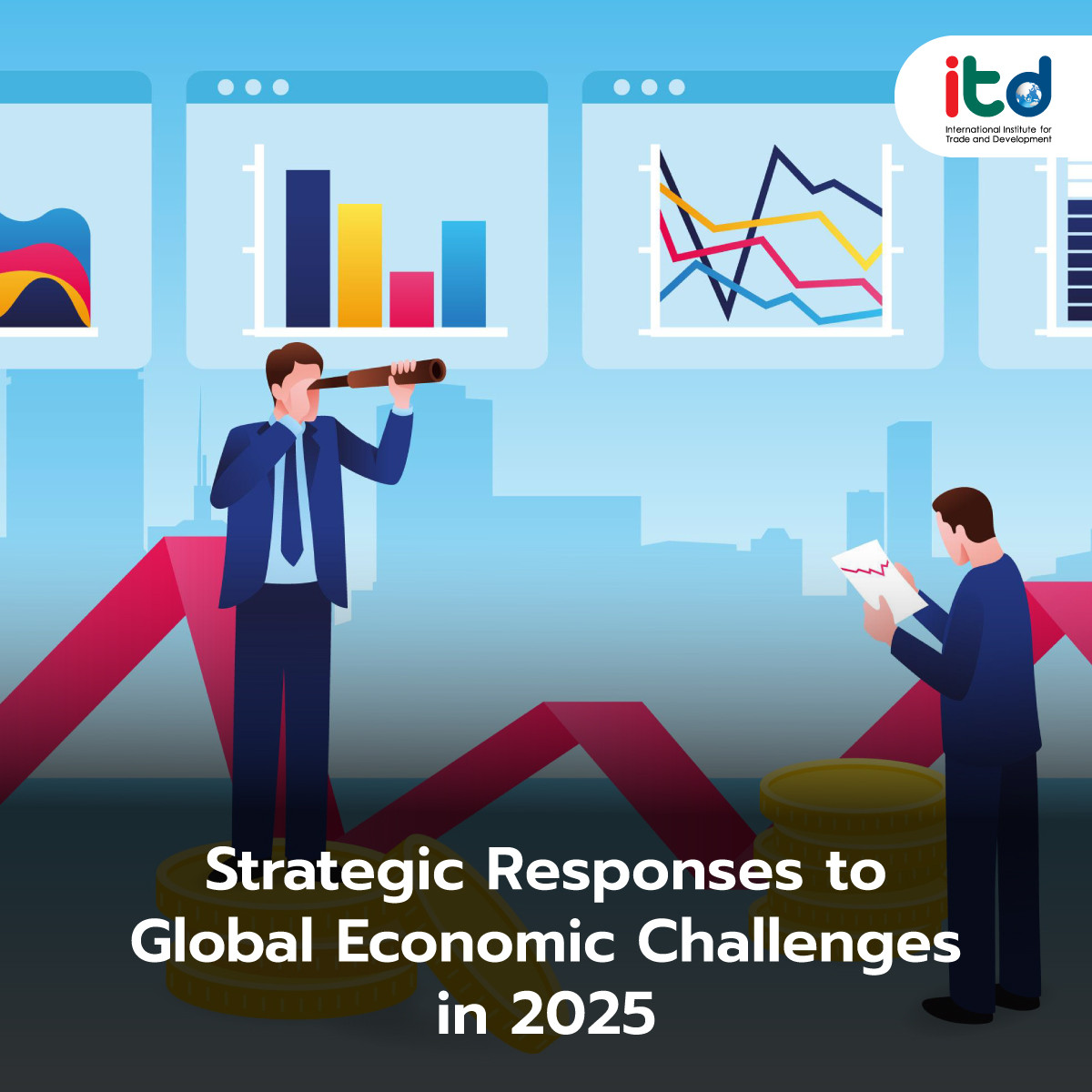About Documents
The circular economy is a concept focused on the development of new products, services, and business models that promote business growth alongside sustainability. It emphasizes managing resources for maximum benefit by bringing resources or materials back into the use cycle. This helps reduce generated waste, with the ultimate goal of eventually eliminating waste altogether. This approach differs from the linear economy, which follows the pattern of “take–make–use–waste”. Many countries are now increasingly implementing regulations related to the circular economy.
However, the global transition to a circular economy brings several impacts. According to the World Economic Forum (2025), these include: (1) employment challenges, especially in industries reliant on manufacturing new products, such as the fashion industry, which may face declining labor demand; (2) export revenue decline, particularly for countries dependent on exports of newly manufactured products, due to reduced demand for new products as resource reuse becomes more common; (3) industrial competitiveness; (4) infrastructure and supply chain adjustments; and (5) skill gaps and workforce transition.
In the ASEAN context, the “Framework for Circular Economy for the ASEAN Economic Community” has been established. It outlines a vision that builds on ASEAN’s existing strengths and initiatives, identifies priority areas for action, and highlights necessary supporting factors to accelerate the transition. The framework’s three main strategic goals are: a resilient economy, sustainable growth, and resource efficiency.
Nonetheless, translating this vision and framework into practical outcomes, particularly for Micro, Small, and Medium Enterprises (MSMEs), remains a major challenge. Many ASEAN MSMEs still struggle with competitiveness and integration into global value chains due to limitations in size, resources, skills, access to information, and the costs associated with meeting various standards.
Regarding the adjustment to the circular economy, the ASEAN Report (2025) indicates that over 57% of MSMEs are already familiar with the concept. However, about 43% still have limited understanding, particularly among entrepreneurs in Indonesia and Malaysia, where a high proportion report unfamiliarity with the circular economy. When categorized by sector, the food and beverage industry shows the highest familiarity with circular economy principles.
Moreover, MSMEs face specific challenges in adopting circular economy practices. These challenges include limited awareness and insufficient technical support, low consumer acceptance of circular products due to higher prices and a prevailing preference for disposable goods, high transition costs for technology and initial investment—which impose significant pressure on small businesses—regulatory barriers, and the complexity of supply chains that must be addressed.
Although the circular economy is widely recognized as a critical path to achieving sustainable development, MSMEs—key drivers of regional economic activity—continue to encounter barriers and challenges in adapting to this system. Addressing these challenges systematically and integratively, through support in knowledge, technology, financing, and the creation of an enabling environment, is crucial for strengthening the capacity of MSMEs and concretely advancing sustainable growth across ASEAN.
Author:
Ms. Natjaree Petruang
Researcher
International Institute for Trade and Development (Public Organization)
www.itd.or.th
Publication: Bangkok BIZ Newspaper
Section: First Section/World Beat
Volume: 38 Issue: 12891
Date: Wednesday, Apr. 30, 2025
Page: 8 (left)
Column: “Asean Insight”





